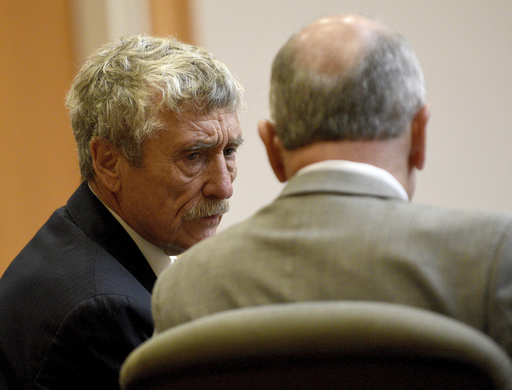
MANCHESTER, N.H. — On Friday, the jury began its deliberations regarding the case of a New Hampshire man accused of holding a teenage boy down during a rape that occurred at a youth detention facility in 1998.
Bradley Asbury, now aged 70, served as a house leader at the Sununu Youth Services Center located in Manchester. He is alleged to have restrained 14-year-old Michael Gilpatrick on a staircase, with assistance from a colleague, while another staff member committed the act of rape, and a fourth person coerced the boy into performing a sexual act.
This trial is the second stemming from a wide-reaching investigation initiated in 2019, which focused on historical abuse incidents at the center. Asbury is one of 11 former employees from the center and an affiliated facility in Concord who have faced arrest due to the investigation’s findings.
The core of the case revolves around Gilpatrick’s testimony, now 41, who expressed the lasting impact the attack had on him. He described the trial as a part of his healing journey and expressed a desire to hold those responsible accountable. During his testimony, he recounted experiencing an out-of-body sensation during the incident, stating, “I can see it happening, but I can’t do anything. I was just not there. But there.”
Gilpatrick encountered several tense moments during cross-examination, at one point labeling the defense attorney as a “sick man” as he was prompted to repeatedly assert his claim of rape. In his closing statements, defense lawyer David Rothstein expressed regret for any discomfort he might have caused during the proceeding.
Rothstein argued that Gilpatrick lived in a fabricated reality, attributing blame to fictional villains for his life’s misfortunes. “Mike Gilpatrick falsely accused Brad Asbury of a crime that he not only didn’t commit, but which, in every shape and form, was virtually impossible to commit,” Rothstein asserted.
The defense emphasized the absence of eyewitnesses and supporting evidence, suggesting that Gilpatrick had altered key aspects of his story over time. Rothstein contended that such an attack in an open area of the facility would have surely attracted attention. He also insinuated that Gilpatrick was motivated by financial gain, noting that he had already received more than $146,000 as part of an expected payout from a connected civil lawsuit.
Conversely, the prosecution acknowledged that while Gilpatrick might not recall every detail perfectly, his account of the main event had remained consistent. The prosecution noted that he was unable to report the incident at the time because Asbury was in a position of authority.
“Instead of guiding Mike, counseling him, showing him a better way to go out and live his life, these four grown men, including the defendant, shattered the trust,” stated Assistant Attorney General Adam Woods.
Asbury faces two counts of being an accomplice to aggravated sexual assault and could be sentenced to a maximum of 20 years in prison for each count if convicted.
Previously, a separate case involving Victor Malavet ended in a mistrial this past September when jurors were unable to reach a consensus on whether he had raped a girl at the Concord facility. The scheduling for a new trial in that matter is yet to be determined.
The extensive investigation has resulted in numerous civil lawsuits, with over 1,100 former residents alleging various forms of physical, sexual, or emotional abuse over a span of six decades. In the only civil trial to reach a verdict thus far, plaintiff David Meehan was awarded $38 million in May for abuse he claims to have suffered in the 1990s; however, that ruling is under appeal as the state seeks to lower the amount to $475,000.
The practice of not naming alleged victims of sexual assault, unless they have opted to go public, is generally followed by many news outlets, and both Meehan and Gilpatrick have chosen to share their stories.
